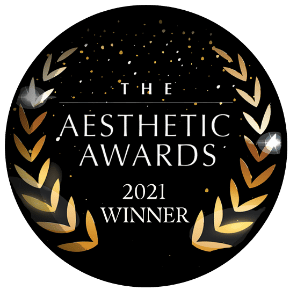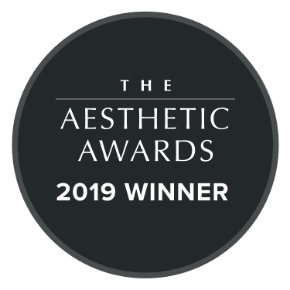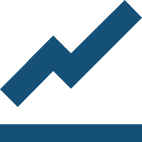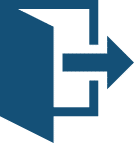00:00:04:06 – 00:01:35:21
Welcome to Shorr Solutions: the podcast. I’m your host, Jay Shorr. I’m the CEO and founder of Shorr Solutions, a national and award winning consulting firm, assisting aesthetic and surgical practices with their operational, administrative and financial success. I have an amazing team of practice management experts and clients across the U.S. and as an industry expert with firsthand experience owning a multimillion dollar cosmetic dermatology and plastic surgery practice.
Listen in as I’ll lend you my expertise and best tips to successfully manage and grow your aesthetic practice. I will also be bringing in guests along the way, so get ready to be equipped to operate your aesthetic practice strategically and profitably. Welcome to Shorr Solutions: The podcast.
Hello, everybody. Once again, thank you for joining us today for another episode of Shorr Solutions: the podcast.
I’m your host, Jay Shorr. I am the founder and CEO of a nationally award winning practice management consulting firm specializing in the operational, administrative and financial health of your aesthetic, cosmetic surgical and medspa practice. Today’s episode is going to feature the benefits of ongoing staff training.
00:01:36:08 – 00:03:23:16
I hear this all the time. Should I or should I not be training people?, and what is the criteria that you use to develop your initial staff training? Well, let me explain. The criteria that you need, all depends on what’s going on in your practice. Let me give you an example. OSHA and HIPAA are items that need to be addressed as soon as a person is hired or as soon as a person switches a job function.
So that if they’re going to have a position that they didn’t have before, even though it’s in the same organization, your practice. But let’s say that they recently were a front desk receptionist, director of First Impressions, or they were an aesthetician and you’re moving them into the role of either a surgical assistant or a medical assistant.
Their role as far as OSHA goes and needle sticks and things that they may come in contact with or chemicals (and I’m not going to get into all the regulations) change and therefore they need to be changed and they need to be trained on all of the new items that they had not formally been trained on.
Another is HIPAA. That has to be done as soon as the person is hired so that they are aware not only what to do, but most importantly, what not to do. And we have done OSHA and HIPAA webinars and we’ve done OSHA and HIPAA podcasts and you can refer back to them as well.
So the criteria that you use to develop your initial staff training can be in multiple formats, and those multiple formats are oral written online.
00:03:24:07 – 00:04:38:19
So do I present a class, for example, in your office? Do I go over and I speak? I’m an instructor at Florida Atlantic University in the College of Executive Education on medical business management, and I do oral. Sometimes I’ll do it online, but the benefit is that I’m able to speak when I’m at conferences and I start to train.
I do it orally so that you can have the opportunity to listen to what I have to say, and I present it with slides similar to that of which we’re doing today on the podcast. I also have written the written ones can be something that you read. It can be online. It could be magazine articles. It could be a book.
Could be articles that we do periodically. So it’s oral. It’s written. It’s online. We have a conversion cascade course that we developed for people to learn how to close cases and close leads more effectively. That is an online, but it is a video. It’s online. It takes about 4 hours to do.
00:04:38:20 – 00:06:34:23
So what are the benefits of ongoing staff training? Boy, if you put your hand on the pulse and you’ll see you can go from 0 to 100% in a New York second and I’m from Philadelphia, not New York. But, what that means is it’s fast bing, bing, bing, real fast. So the benefits of ongoing staff training is that any time that you get anything new in your practice, whether it’s a policy, a procedure or a protocol, a new device, a new neural modulator, neurotoxin, dermal fillers, procedure, anything, you have ongoing staff training so that something doesn’t get forgotten.
And if there are new rules and regulations, whether it’s local, state or federal, your staff is always apprized of the latest and the greatest articles and ideas of what’s there today. The benefits of ongoing staff training. Steve Jobs had a famous saying and the famous saying goes like this What happens if we train all of our staff, spend all this money and they leave? and the answer, the other side of the coin is what if we don’t train our staff and they stay?
As you can see, you’re doing a disservice to yourself by having people, having staff members, no matter how educated they are, not having continuous and ongoing training. Knowing your website back and forth and knowing all of your policies, procedures, protocols. So what are the main topics that your staff should be trained on?
Operational and Administrative
00:06:35:15 – 00:08:15:17
Operational and administrative. Let’s see what they are. Operational, administrative are all the nuances that go on in your practice each and every day. Not operational necessarily in a surgical operation, but operational is when you walk in the front door. What is the first thing that each person is responsible for? I always had every one of my staff members in our practice look with open eyes as if they were a patient or a prospective patient and not necessarily walk in with a horse in a race with blinders.
But more so opening up your eyes to see what a patient might see. Example Your office at 3:00 in the afternoon noon should look like it does at 8 to 8:30 in the morning. Pristine, clear, no water cups on the floor, No bottles of water on the floor. No hole punch circles from paper on the floor or whatever.
Make sure operationally and administrative. All of the financing, all of the paperwork that your computers are fine, that you have all the distilled water filled into the lasers, the procedural, making sure they train them how to stock, you know, not only the individual rooms, with all the supplies so that you never have to be running from room to room. Patients notice these things.
Procedural
00:08:15:18 – 00:08:36:12
Procedural, making sure that the trash cans aren’t overflowed, that they can shut each and every time, and that you don’t have table paper and tissues and bloody gauze hanging out.
OSHA and HIPAA
00:08:36:12 – 00:10:10:04
The staff should be trained on OSHA and HIPAA. OSHA, for example, the Right to Know. Title 29 of the Code of Federal Regulations, subsection 1910.
I don’t want to bore you with regulations, but these are chemicals and right to know. They need to be trained on what to do with chemicals, material data sheets for health, flammability and reactivity, what to do in a situation like that, what to do in the event of a needle stick, what to do in the event that you separate liquids from its original container into another container.
And then you have to label the secondary container because it is everybody’s right to know what’s in that container. And then, of course, HIPA, the main thing about HIPAA is the protection of protected health information (PHI). We have to protect you, from you in spite of you. And the answer to all of that is, is that we need to protect the licenses and we need to protect the privacy of our patients.
Nothing should ever stand in the way because it’s not a local, it’s not a state. It is a federal law by the Department of Health and Human Services.
Other Regulatory Concerns
00:10:10:04 – 00:11:10:21
And then there are other regulatory concerns, meaning who in your office is allowed to do what for a patient in certain states? Medical assistance under the direction of a doctor M.D., D.O., nurse practitioner.
If they are the ones that are directors, they are allowed to perform specific procedures, whereas in other states they’re not. Example in the state of Florida, a registered nurse and a medical assistant cannot perform injectables and dermal fillers and neurotoxins and lasers. In other states, they can. However, in the state of Florida, an aesthetician, if they’re an electrologist, can do laser hair removal and a nurse practitioner and a P.A. and a doctor can always do any of those procedures.
You have to be very careful who can do what to whom and always make sure that you error on the side of precaution and not say, “well, it’s a gray area.”
00:11:10:22 – 00:12:54:16
Yes. We’re going to take a quick break and a slight intermission, because what kind of business would we be if we didn’t tell you about our own services?
I’d like to take a moment to tell you about our conversion cascade online course. We want you to be trained to convert more patients and boost revenue in your aesthetic practice. So with our conversion cascade online course, you and your team will be able to master two key important things to growing your practice and becoming successful, converting and retaining new patients.
So as a step by step sales funnel, the course is designed to help you and your team attract more patients, convert calls to consults, convert consults to treatments and procedures, and keep patients coming back for more. Not only will our conversion cascade Online course help strengthen and develop your team’s phone and sales skills in order to acquire, convert and retain loyal patients, but will also serve as a valuable onboarding training tool for every new team member.
Plus, in this course you’ll receive downloadable marketing checklists, phone scripts, conversion tracking tools and more. Sign up for the course to get started on increasing your revenue and converting more patients today. It only takes less than 4 hours to complete the course. You can finish it at your own pace and you’ll have lifetime access and as a special thank you for our podcast listeners, we’re giving you a 20% off discount. Just enter the Code PODCAST to start saving. Click the link in our show notes to sign up for the conversion Cascade Online course and convert more patients now.
00:12:54:23 – 00:15:22:13
So who should be conducting the staff training? Multiple levels. Supervisors. Management. I always believe in multiple levels of management and supervision in your office.
So now who’s at the top? You have your doctors or spa owners, and then you may have practice administrators, practice managers. We’re not going to get into the differences of what they are. And then you have providers, whether it’s an NP, PA, who are your higher level practitioners outside of the physician. And then you may have office managers, office supervisors, medical clinic supervisors, fellow staff members, and even internal vendors, internal vendors, external vendors, the suppliers who supply your neural modulators, your toxins, your dermal fillers, your skincare products, the sales reps for your different laser companies that might come in, bring a lunch, train you on their product.
I believe in having staff training a minimum of once a month. In my former office, we did a training every week on something and then when we’re done, we go back to the drawing board in case there were new people. But always make sure that you’re able to train people at the level that they understand. Don’t talk over them.
Don’t talk in medical terminology that they not, may not be familiar with, because then you will bore them. So it’s always mandated that you ensure the understanding from the staff before you go on.
When I lecture, I present or I teach, before I move on to the next topic, I will ask the people in the audience or my students or my staff, before I move on, can I ensure that there is a 100% total understanding of what we’ve just reviewed? Why do I do that? Because sometimes if you keep going, it may be havoc to catch up once they didn’t understand something.
00:15:22:14 – 00:18:08:03
All right. So where should the training take place? Onsite or offsite? That’s very tricky. If you are very limited on time. Onsite is very good.
However, let me share the concerns I have with onsite training. If it’s procedural training and you’re doing it in the exam room on a patient, it’s very good. You’re able to train them on a live patient to show them the best techniques and how to do it. But if it’s operational and procedural, if you’re very limited on time, to have a vendor coming in for that one hour during a lunchtime is very good.
However many people, many of the practices that are our clients say that they don’t like putting the phones on voicemail and I’m not one for that either. But more and more when I call a practice, I hear our normal hours are 8 to 5. We are closed from 12 to 1 for lunch, 1 to 2 for lunch, whatever that might be.
But I assure you that the benefits of training them for that 45 minutes to an hour and putting your phones on voicemail. All right. Versus not having that person answering that phone. Unless that training doesn’t pertain to them is wonderful. Now, offsite, I believe offsite is a great way of training. Why? Because you’re removing them from the element and you’re removing them.
The possibility of the phones ringing, you’re removing them from any other distractions. I’ll give you a perfect example. Dr. Tom Janabi, a big plastic surgeon in San Antonio, Texas, had us come out and he did training twice a year. Major training, and we presented big, big training portfolios. And one time he had us come out and we trained at a hotel in San Antonio for two days.
The next time we did it, he brought his entire staff to Las Vegas. We stayed the Bellagio over the weekend and we did 4 hours of training one day, and we did 4 hours of training another day for the entire staff to hear. And the rest, it was, you know, catered breakfast, catered lunch, and the rest of the day was recreational.
And then we had team bonding in the evening. Now, I’m not suggesting that you do that. I was just explaining that it was a team building exercise and the benefits of that were enormous. All right.
00:18:08:04 – 00:20:21:01
So question, Should I send my staff to external conferences for additional training? Well, here you’re preaching to the Jay Shorr choir because I and my team lecture at about a dozen conferences a year, whether they’re in Georgia or New York or Florida, Las Vegas, California.
And when you do them, they’re very structured. The external conferences, there are expenses to that, because if they’re not in your hometown. You have the expense of travel. You have the expense of lodging. You have the expense of the meals. You have the expense of the conference itself. And that’s the last time I’m going to use that word expense, because it’s really not an expense.
It’s an investment. Many, many years ago, I had a staff of 29 between my our staff and my clinical staff and my office staff, and I said that if you took and passed the pretest of a certified aesthetic consultant course, that that time was put on by the Aesthetics Show, that we would bring our entire team to Las Vegas for the live version of the certified aesthetic consultant course. Every member had to attend, you had a pretest before we even left and traveled, and if everyone didn’t pass the pretest, we didn’t go.
However, what that did is ensured that the team helped the rest of the team get through that. And we all went and we had team bonding, team building. I believe the external conferences are great for clinical staff because there’s live didactic training from some of the experts in this industry.
And then there is staff and then there is practice management training. So you have concurrent learning sessions, whether it’s from surgeons, whether it is from key opinion leaders, whether they are sponsored lectures by vendors, or whether it’s practice management experts like myself and my colleagues who can teach. And it is a wonderful way and I mean a wonderful way for the team to get away and have additional training.
00:20:21:17 – 00:23:38:13
So does the costs and or the expense outweigh the benefit of staff training? The pros and the cons. It’s something that I just went through and I promised that I wouldn’t use that E-X-P-E-N-S-E word anymore because it’s really an investment so that the cost of that investment outweigh the benefit? It absolutely does, because staff training, training is something you can never take away.
Knowledge is power. And I don’t know about you, but I want my team to be trained to the best of their capability and the best of their ability. I want every team member to know your website back and forth, because when a prospective patient or an existing patient goes onto your website and then they call you, they already know the answer to the question that’s on your website.
They just may need a little bit more clarification. And it really is not to the best of your advantage or your staff not to know. Now, when a staff member doesn’t know something perfect answer: “That’s a great question and I will make sure to get back to you with the answer.” Don’t give answers that A: you’re not qualified to give and B: you’re not licensed to give.
So, Jay, what do you mean by that? I mean, that is knowledgeable about medicine that I am if somebody asks me a medical question, I can only legally give my opinion. I cannot give medical advice no matter how knowledgeable I am, and I’m fairly knowledgeable about at least our field of medicine. So be very careful that when you’re training to ensure that you don’t answer questions, that you are not legally licensed and qualified to answer, get the right person to do it.
You may give an opinion about how Botox feels. Example in some patients going to ask you What drugs am I going to get to put me to sleep? Unless you are licensed to handle that question and give that answer, stay away from it. Because what you may have heard from the previous case, the doctor, your surgeon, what you don’t know whether or not there are any co-morbidities or allergic reactions to a medication that an anesthesiologist would not give to somebody.
And you’re already answering the question that you may not have all the answers to. So be very, very careful.
00:23:18:13 – 00:24:33:09
How do I measure the effectiveness of that training? Is it my ROI, an acronym known as Return on my Investment? Return on Investment? And secondly, is the training measurable? Well, the effectiveness is you’ll know by the responses that you’re getting, the amount of close… the cases that your staff is able to close.
Listen to some of the ways that your staff speak, look and see. Is it manageable? Is it measurable? You’ve got to know how to effectively manage and measure the effectiveness of your staff training because you’re making a major investment. Would you make a major investment in anything without knowing whether or not you’re getting a return? I don’t think so.
And that should be true because the time that you take to train time is money.
00:24:33:17 – 00:25:26:06
So how long should it take to determine if that training is effective? Sometimes right away. Depends on what you’re training. And then other times, three months, six months, nine months, or even a year, because you have to do training, ongoing training and continuous improvement processes. Because time management, effective delegation, how do you know?
You may not know until your next review of your PNL or your next review of how many cases you’ve closed from where you were before. Because if you weren’t doing a very good job in closing your cases and sales training, telephonic training, how to do these things, and then all of a sudden you do all these training and you notice an uptick in the amount of sales it’s been effective if you’ve had workplace related accidents, slips, trips, falls, needle sticks, whatever, and you’ve done OSHA training and you notice a severe drop, then you notice that it was effective.
00:25:26:22 – 00:27:30:03
So ladies and gentlemen, they are the top tier and the top ideas of the benefits of ongoing staff training. I’m your host, Jay Shorr and I look forward to seeing you on the next episode of Shorr Solutions: The podcast. Good luck and God bless.
So that wraps up today’s episode of Shorr Solutions: The podcast. If we mentioned any website links, you can find them in our show notes to work directly with me and our award-winning team of consultants to increase efficiency, increase revenue and decrease costs in your aesthetic practice schedule is free consult with us today.
We will help you establish and refine your aesthetic practices’ protocols for maximum efficiency and productivity, decrease your expenses and increase your profitability with an expert financial analysis of your business. Attract more patients, convert calls to consults, convert consults to treatments, and keep patients coming back for more with our sales training, coaching and complimentary access to our conversion cascade online course. Recruit, hire and train new team members and manage any staff turnover with our human resource expertise plus more.
Head over to our show notes and click on the link to schedule a free 30 minute consult with us today, and if you enjoyed today’s episode, don’t forget to spread the word and share this episode with your friends, colleagues and the rest of your team. Remember to also follow us on social media @Shorr Solutions and sign up for our e-newsletter.
You’ll learn about our latest tips, blog posts, services, videos, webinars and more. Links to our social media channels, and to sign up for our e-newsletter are in our show notes. So see you next time and remember to leave us a review and subscribe for more valuable content.














